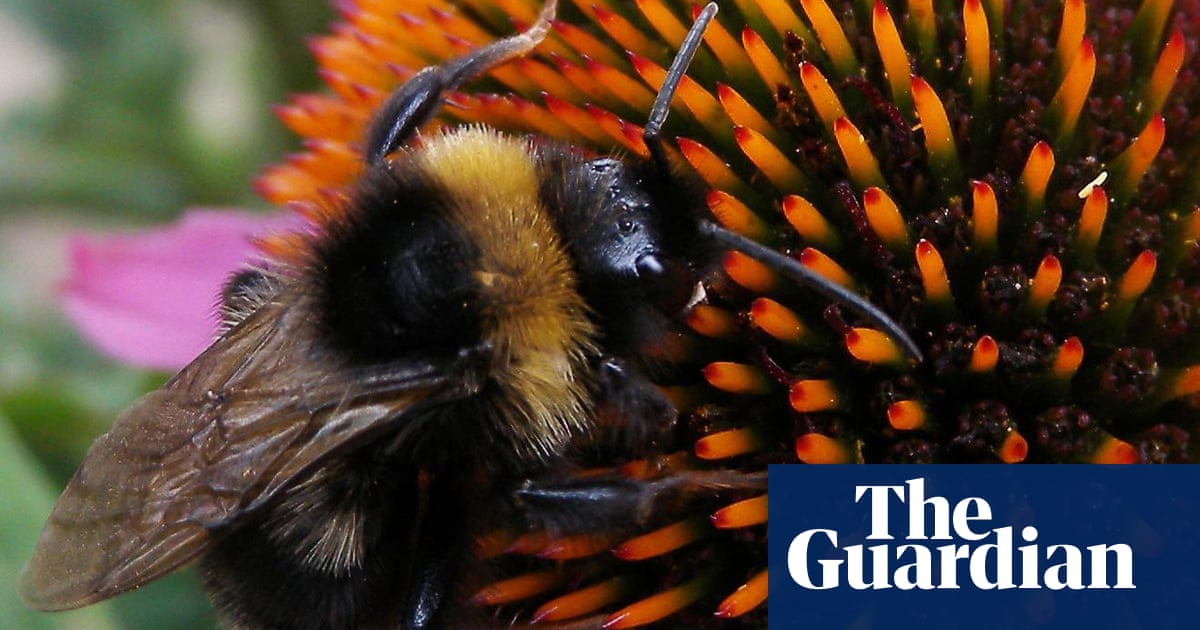
The UK government should stop ignoring the science and block a bee-killing pesticide from being used, business leaders have said.
The neonicotinoid pesticide Cruiser SB is used on sugar beet and is highly toxic to bees. It is banned in the EU but the UK has provisionally agreed to its emergency use every year since leaving the bloc. In 2017, the then environment secretary, Michael Gove, promised to use Brexit to ban all neonicotinoids.
Government scientific advisers said in September they were not able to support an authorisation for Cruiser SB, because the “potential adverse effects to honeybees and other pollinators outweigh the likely benefits”.
Now a group of businesses that depend on pollinators, including some farmers and those who use botanicals in their products, have said the government must heed their advice and not allow bee-killing pesticides to be used.
In a letter to Mark Spencer, the farming minister, Anabel Kindersley, the chief executive of Neal’s Yard Remedies, Tim Mead, the head of Yeo Valley, as well as the boards of Lush and the Body Shop have asked him to block Cruiser SB from use.
“We need to listen to the scientists. Excessive pesticide use is killing our bees and other essential insect species that we rely on for a healthy, safe and clean environment,” they wrote.
“A single teaspoon of neonicotinoid is enough to deliver a lethal dose to 1.25bn bees. One-third of the UK bee population has disappeared in the last decade, and since 1900 the UK has lost 13 out of 35 native bee species.
“Many UK businesses rely on a healthy pollinator population to uphold the high standards of our products. We need sustainable agricultural practices that don’t harm our ecosystem.”
Sugar beet has one of the highest profit margins of any crop grown in the UK but growers fear these could be hit by virus yellows, a disease spread by aphids, which can decrease crop production.
Seeds are treated with Cruiser SB and this kills the aphids. However, the pesticide spreads into the soil, meaning any wildflower that grows in it is toxic to the bees that visit to pollinate.
Farming unions and sugar beet growers have been lobbying the government to allow for Cruiser SB to be used next year, and it is thought ministers are likely to approve its emergency use.
Kindersley said: “Bees and other critical pollinators are being endangered simply to grow slightly cheaper sugar. We believe that by acting against the advice of its own scientific advisers, the government is putting the UK’s well-deserved reputation for environmental leadership at risk.”
A spokesperson for the Department for Environment, Food and Rural Affairs said: “We have received an application to use the neonicotinoid product Cruiser SB on the 2024 sugar beet crop, which is now being assessed.”












